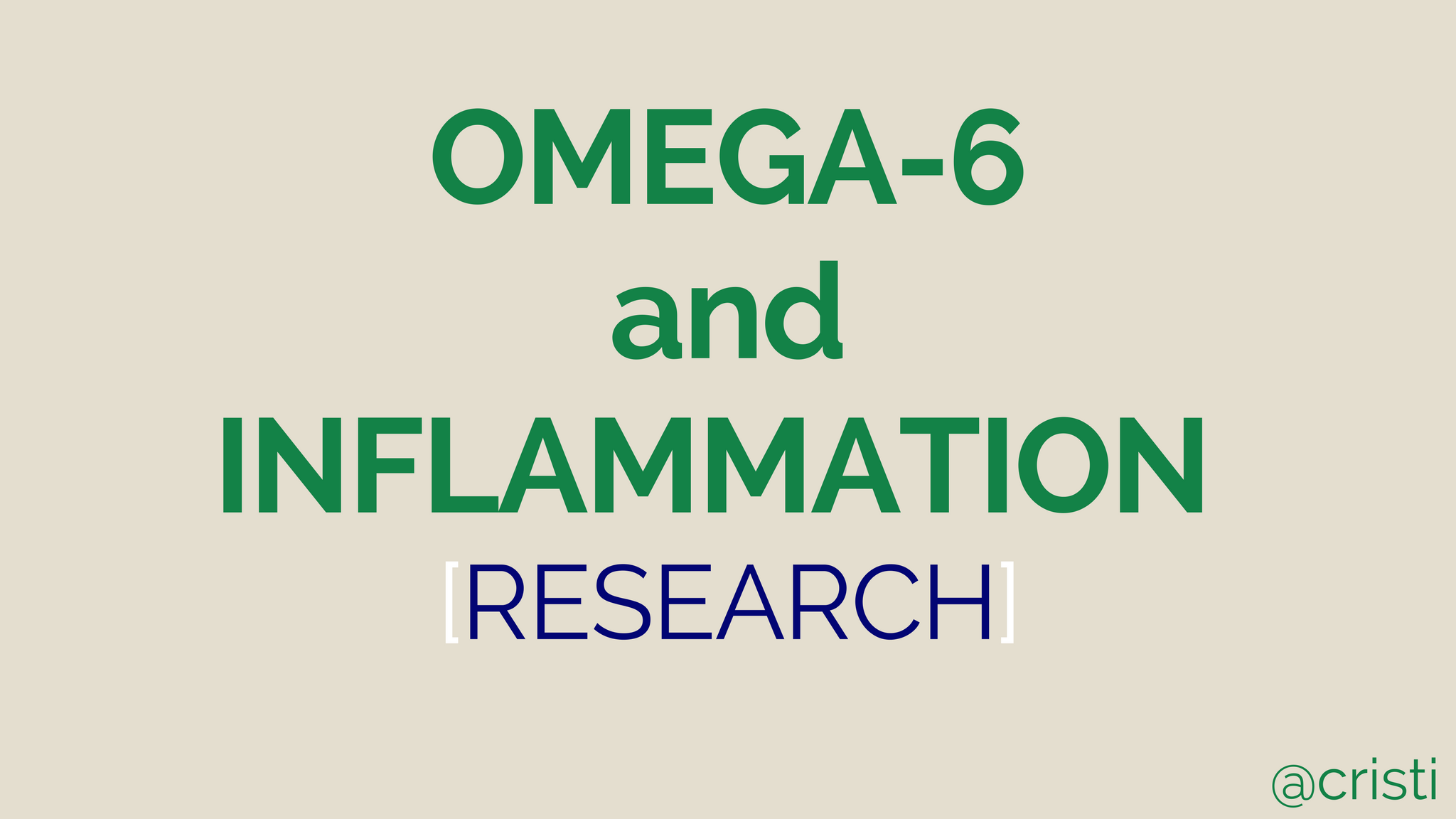Omega-6 Fatty Acids and Inflammation - [Research]

A recent study conducted by researchers at a University from Finland looked into the association of circulating omega 6 fatty acids and CRP (C-Reactive Protein) in men.
In brief:
- 1,287 healthy males, 42-60 years old were included
- they measured their CRP levels
They found that low levels of circulating linoleic acid (an omega-6 polyunsaturated fatty acid) was associated with higher levels of CRP:
"Arachidonic acid or the mainly endogenously produced n-6 PUFAs, gamma-linolenic acid and dihomo-gamma-linolenic acid, were not associated with higher CRP, either. Age, body mass index, or serum long-chain n-3 PUFA concentration did not modify the associations (P-interactions > 0.14)." [source]
They also discuss earlier findings that are similar in that higher intake of dietary linoleic acid does not increase inflammatory response. In contrast, they support the theory that linoleic acid is associated with lower risk of diseases where inflammation plays a central role, such as CVD and T2D.
Now, this is opposite to the research that supports the theory that PUFAs are inflammatory. I am curious and interested in seeing how well these associations hold in other independent studies. Link to the article:
To stay in touch with me, follow @cristi
Cristi Vlad Self-Experimenter and Author
Goes against traditional wisdom. Interesting. Hopefully omega 3s are still good for us! :P
Haha, yes!
All PUFA oxidize easily, they are chemically unstable, animal sources come with antioxidants so that they remain useful to the animal. I just wrote an artical that covers a lot of this ground quickly. https://steemit.com/health/@freemoceanisnow/metobolic-meltdown-and-insulin-resistance-a-brief-overview
My understanding is that PUFA6 are unstable if not in the presence of antioxidants- such as you would find with PUFA3 in salmon. The instability of these oils is irritating endothelial cells in arteries and oxidizing the LDL and ascorbic acid depleted macrophages (GAA effect) that come to patch and clean up. They may be front running and depleting glutathione levels that are needed in the mitochondria. This would explain why people using carbs for fuel were not nearly so insulin resistant as they are lately. The ROS produced when there is insufficient glutathione is the signal for insulin resistance - the beginning of metobolic syndrome. Inflammation that come later.
I don't think carbs per se should be blamed. Rather, eating too much too frequently...